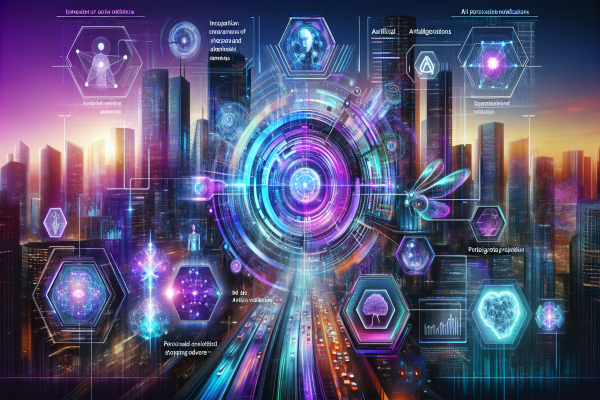
Harnessing the Power of AI in Ecommerce: A New Era for Online Retail
Introduction
The rise of artificial intelligence (AI) in ecommerce is nothing short of revolutionary. According to a recent study, the global AI in ecommerce market size is expected to reach USD 16.8 billion by 2027, growing at a CAGR of 29.7% from 2020 to 2027. This statistic underscores the transformative potential of AI in the online retail sector.
AI, or artificial intelligence, refers to the simulation of human intelligence processes by machines, especially computer systems. In the realm of ecommerce, AI is reshaping how businesses operate, offering tools for personalization, customer service enhancement, inventory management, and more. For ecommerce store owners, online retailers, digital marketers, entrepreneurs, and ecommerce managers, understanding the role of AI is crucial for staying competitive in this rapidly evolving industry.
The Evolution of Ecommerce with AI
Historical Context
Before the advent of AI, ecommerce was primarily driven by static online catalogs and basic search functionalities. Customers had limited interaction with online platforms, and personalization was minimal.
Current Trends
Today, AI is seamlessly integrated into ecommerce platforms, enabling dynamic customer interactions and personalized shopping experiences. From AI-powered chatbots to sophisticated recommendation engines, AI is enhancing the way consumers shop online.
AI-Driven Personalization in Ecommerce
Understanding Personalization
Personalization in ecommerce refers to tailoring the shopping experience to individual customer preferences, behaviors, and needs. It is a critical component for increasing customer satisfaction and driving sales.
AI Tools for Personalization
AI technologies like recommendation engines and chatbots are at the forefront of personalization. Companies like Amazon and Netflix have set the standard by using AI to recommend products and content based on user behavior, significantly enhancing user engagement and satisfaction.
AI and Customer Experience Enhancement
Improving Customer Interactions
AI chatbots and virtual assistants are transforming customer service by providing instant responses and solutions to customer inquiries. This technology not only improves efficiency but also enhances the overall customer experience.
Case Study
Salesforce's use of AI in customer service has led to a significant increase in customer satisfaction, demonstrating the potential of AI to improve customer interactions. Read more about Salesforce's AI implementation.
AI in Inventory Management and Logistics
Streamlining Operations
AI optimizes inventory management and logistics by predicting demand and reducing overstock or understock situations. This leads to more efficient operations and cost savings for businesses.
Real-World Application
AI-driven demand forecasting tools help businesses anticipate market needs, ensuring that inventory levels are optimized to meet customer demand without excess stock.
AI-Powered Marketing Strategies
Targeted Marketing
AI assists in segmenting audiences and personalizing marketing campaigns, allowing businesses to target specific customer groups with tailored messages and offers.
Tools and Technologies
From AI-driven analytics platforms to automated marketing tools, AI is revolutionizing how businesses approach digital marketing, making campaigns more effective and efficient.
Challenges and Ethical Considerations
Potential Challenges
Despite its benefits, AI in ecommerce faces challenges such as data privacy concerns and AI biases, which can impact consumer trust and brand reputation.
Ethical Considerations
Responsible AI use is essential to ensure ethical standards are upheld in ecommerce operations, emphasizing transparency and fairness in AI-driven processes.
Future of AI in Ecommerce
Emerging Technologies
Upcoming AI technologies, such as augmented reality and advanced predictive analytics, are poised to revolutionize ecommerce, offering even more personalized and immersive shopping experiences.
Predictions for the Next Decade
As AI continues to evolve, it is expected to play an even more significant role in shaping the future of online retail, driving innovation and efficiency across the industry.
Conclusion and Key Takeaways
In summary, AI is transforming ecommerce by enhancing personalization, improving customer experiences, streamlining operations, and enabling targeted marketing. For ecommerce businesses, integrating AI solutions is not just an option but a necessity to remain competitive and meet evolving consumer expectations.
To explore AI solutions for your ecommerce business, visit RashFlash AI Solutions and start leveraging the power of AI today.

